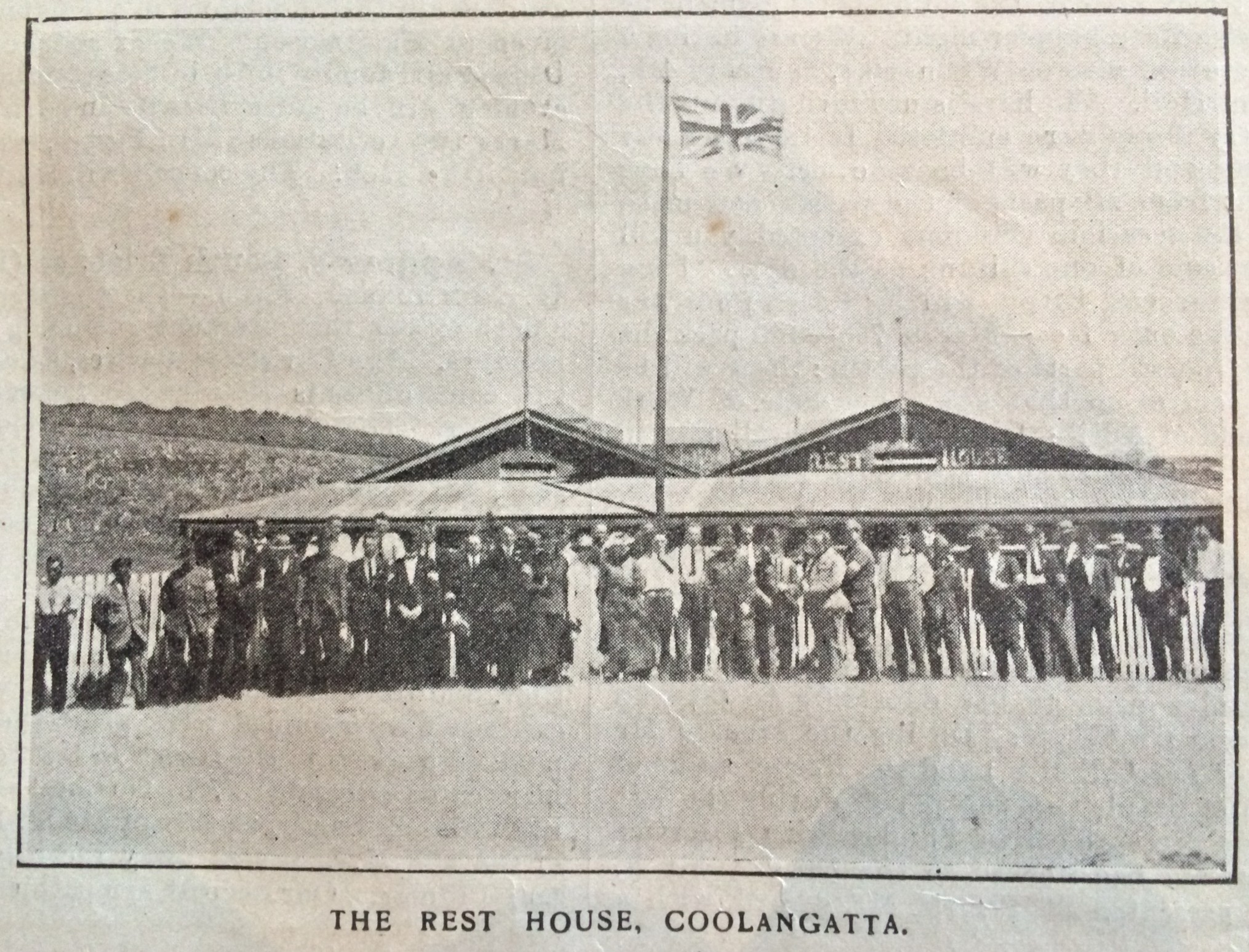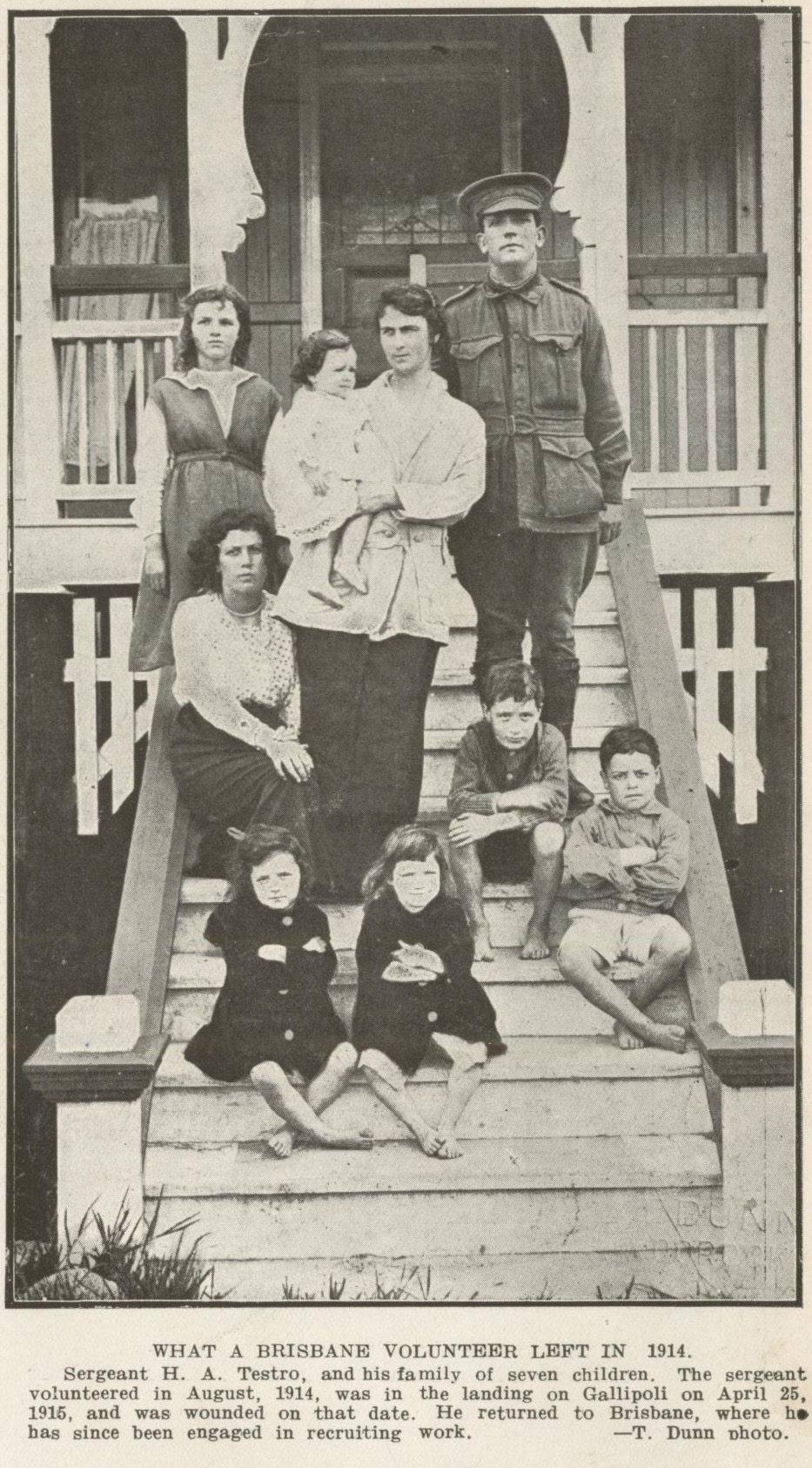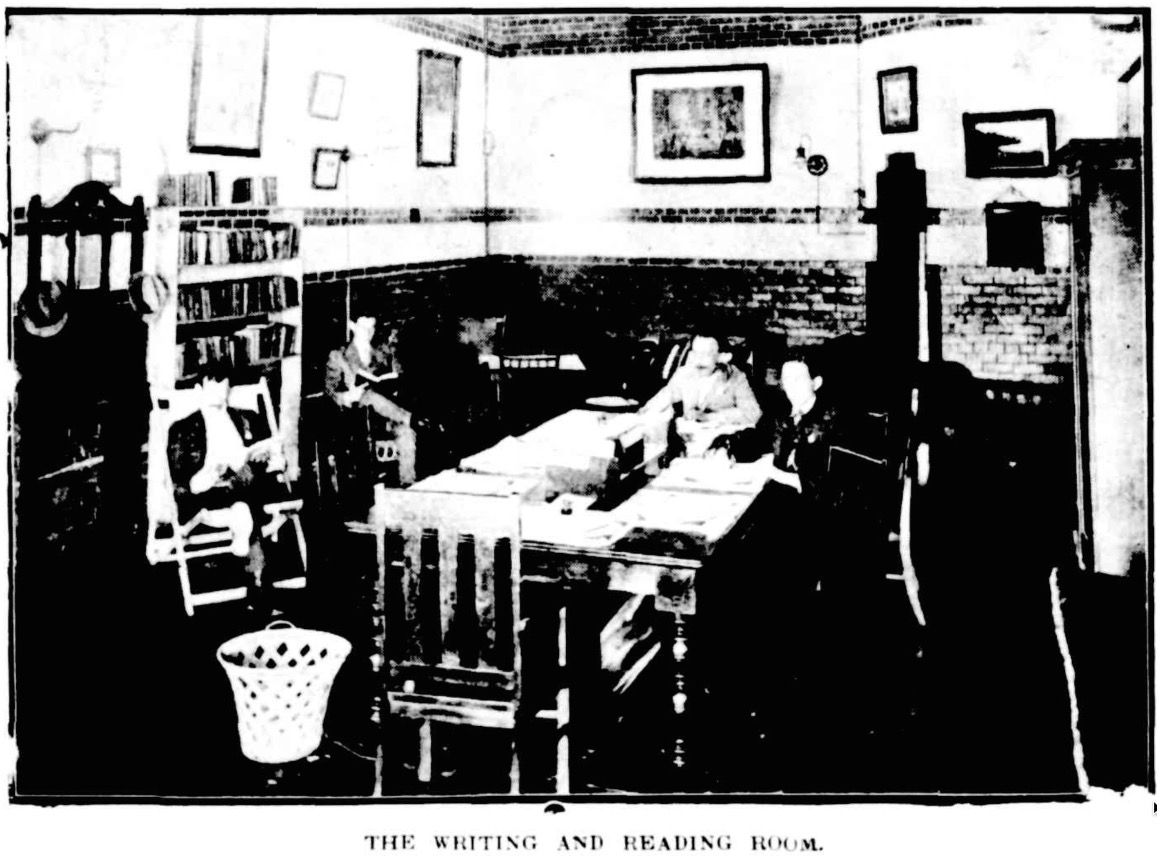Our Soldier Boys
ABOVE: This photo illustrated the column penned by Canon Garland (transcribed below) which appeared in the 1 November 1915 issue of the Church of England (Anglican) monthly newspaper, “The Church Chronicle” (page 229). The caption read: “Our chaplains at work: An open-air Church Parade”. First AIF soldiers are shown attending as a Church of England chaplain (possibly Fr Garland) conducts a Sunday Holy Eucharist service at Enoggera training camp, probably in late October 1915. In the distance is “The Salvation Army Institute” (a chapel) and a “Coffee Bar” for the troops. By the end of October that year, Chaplain Lieutenant Colonel Garland was ministering to thousands of men as well as co-ordinating multi-denominational religious and social work services from six makeshift chapels set up amidst the sprawling tent city.
‘Nothing is too good
for our Soldiers.’
Usually I have emphasised the social side of our work, as that is the side for which money is required so much; and although we now have six tents at work, men in other camps are asking the Church of England to put up tents.
But this month I put the money aspect on one side, although the very success of our tents makes a constant flow of money all the more necessary.
I want to say a little about the spiritual side of the work, which is the most important of all, and to which social work, though good in itself, must only be second.
First, of our parade services. These present many difficulties, and a great deal of sacrifice on the part of those providing them.
More and more the men have been, and are, demanding their own Church services.
Indeed, through failure to have them, some of our men have been attending Roman Catholic services, and in some cases, breaking leave to get into Church where they could receive Holy Communion, or to hear their own Prayer-book; or, in other cases, dodging Church parade altogether.
This now is largely ended.
We are endeavouring to provide, every Sunday morning in the larger camps, celebration of the Holy Eucharist at 7 o’clock.
The Brisbane Clergy are very good about it, and, without their co-operation, the services could not be held, Bishop Le Fanu, Canon Micklem, Chaplain Captain Canon Hay, Chaplain W. Scott, the Rev. E.C. Ganly, and the Rev. G.S. Watkin giving their valued help, at much cost of effort to themselves.
Thus we are able to have four or five celebrations in the various camps every Sunday morning, but even these are not enough, for the men ask for them in every camp.
It is a sight never to be forgotten to see many hundreds of men at each celebration at that early hour – the total attendance at all the Eucharists running into thousands every Sunday morning.
Those who have been privileged as visitors to be present at one of these services tell me they have never seen anything like it, the reverence of the men, and the natural simplicity of their manner about Holy Things being noticeable.
The ideal aimed at is that every man should receive Holy Communion before he leaves camp – after careful preparation, which the holding of our services allows us to give, in addition to other preparations of a more personal or special nature.
One evening last week I had 150 men present at preparation, and that was in a camp where there were only 1,000 men at the time.
I wonder how many parishes, with, say, 600 Church of England men, would have 150 of them coming together, after a hard day’s work in the sun, for preparation for Holy Communion.
I mention these things to show that the men are making an immense response to spiritual things.
Indeed it is not too much to say they clamour for the Sacraments. I am not altogether surprised, because I believe the Holy Ghost is working in their hearts as a reward for their response to the call of duty.
Some people think the men fight shy of religion, but actually they are asking for more services than we are able to provide.
Many earnest men amongst them, especially the C.E.M.S. [ Church of England Men’s Society ] members, are actively at work influencing others to come to the Sacraments, and to live a decided Christian life.
I could tell many incidents about the men and their earnestness, but somehow they seem to be too sacred to put into print, and so I will pass the personal stories; but here are two incidents: Mr Watkin, Organising Secretary for the C.E.M.S., has been released from active organising in order that he may devote himself to distinct spiritual work amongst the men in camp – a splendid thing for the C.E.M.S. to do.
To-day he tells me that in one camp, where we have no tent, the men are asking him to hold open-air, week-night services – to be in addition to the Sunday Church parade, to which the have to march some distance – yet they want more.
In the camp in which he lives, the services he holds, in addition to the parade, are crowded out, not only the tent being full, but the men standing outside.
There is a contrast between such a service and one in a Parish Church, because in a camp and in a tent, men come and go as they please. They have no comfortable seats or kneelers, and yet stay on in crowds for the services he conducts.
At another camp last Sunday night, prior to men going away, I thought at first the men had had enough services of our own and of other people during the day, and therefore I told them I did not want to force an evening service upon them. Whereupon some of the men came to me and said: “We have not had enough, and we want our own Evensong.”
We there and then had a shortened Evensong with the soldiers’ Psalm – “The Lord is my Shepherd”.
David J. Garland
Resident chaplain, Lt.-Colonel.



